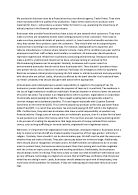Post education pre-families will also make use of pensions. It is important that people make use of pension while they are still earning, so that they can maintain their standard of living after they stop earning. There are 3 sources of pension provision in the UK, state schemes, occupational schemes and private plans. The basic State Pension is a pension paid to you by the government when you reach State Pension age. It is based on the number of qualifying years gained through National Insurance contributions you have paid. However, this isn’t enough money to live so it’s important to have occupational schemes or private plans. Occupational pensions are set up by employers to provide pensions for their employees on retirement. Rules vary for different company pensions but money is paid into the pension usually from your salary and employer. But I can be just from your employer or just your salary. Alternatively, a private pension is pension you pay a regular amount, usually every month, or a large sum to the pension provider who will invest it on your behalf. These pensions are good if you are self-employed or are working but cannot afford the pension. Post education pre-families will make use of pensions to ensure that when they reach a pensionable age, they will have enough funds to survive and live a happy life on.
Lastly, Post education pre-families will make use of mortgages. Mortgages are a long term loan, usually between 10 to 30 years that is issued to buy property. Before the lender will issue the loan they will see the ability of the borrower to repay the loan, the nature and stability of the borrower’s employment and the borrower’s previous history of credit repayments. There are two different methods of repaying a mortgage. Repayment mortgage is when the borrower makes monthly payments, consisting partly of interest and capital repayment. The amount of capital outstanding therefore reduces over the period of the loan until it is fully repaid at the end of the term. Conversely, an Interest-only mortgage is when the monthly payments to the lender is made up solely of interest on the loan. No capital repayments are made during the term of the loan and the capital amount outstanding does not reduce at all. In addition to the payment methods there are also different ways of paying interest. A Variable rate is the basic method with monthly payments going up or down due to the changes in the Bank of England base rate. Then there is fixed rate which is when the interest rate is fixed for a specified period. Lastly, there is a tracker mortgage which is alike to variable rates but are more directly linked with the Bank of England. With a tracker mortgage the borrower has to pay 1% above the Bank of England rate. Post education pre-families will want to have a mortgage to buy a house ready to have a home to start a family in.
Similarly, established families will make use of pensions to ensure they have money ready for when they reach a pensionable age. Established families will also make use of life assurance to protect the rest of the family if someone dies. However, established families will also make use of insurance. There are many different insurances that protect different things. Firstly, they will make use of health insurance. Health Insurance is designed to provide replacement income in the event of an individual being unable to work due to illness, disability or accident. Likewise, Critical Illness Cover covers people who have life threatening illnesses such as forms of cancer, heart attack, stroke or total and permanent disability. The benefit is payable on the diagnosis of one of the specified range of illnesses and conditions. Correspondingly, Private Medical Insurance provides individual with access to private medical treatment rather than being dependent on the National Health Service (NHS). This can help people have treatment quickly and in nicer conditions. Then there is General Insurance which includes all types of cover that are not defined as life assurance. General insurance includes property loss which covers loss, left or damage. Liability loss which results resulting from a legal liability to third parties, for instance personal injury or damage to property. Next is Personnel loss which is due to injury, sickness or death to employees. Then pecuniary loss as a result of defaulting creditors and interruption loss which is when a business is unable tom operate due to one of the other losses occurring like premises have suffered fire damage. Furthermore, there is building insurance which covers a building for things such as fires, floods, falling trees or breaking or collapse of television aerials. There are many further insurances such as travel insurance which covers you if there are problems when travelling or motor insurance which protects vehicles if it is someone else its fault. Established families will need to have insurance to protect themselves health wise and protect their belongings as it would cost a lot of money for items that are stolen or damaged even if it wasn’t their fault if they didn’t have insurance.








